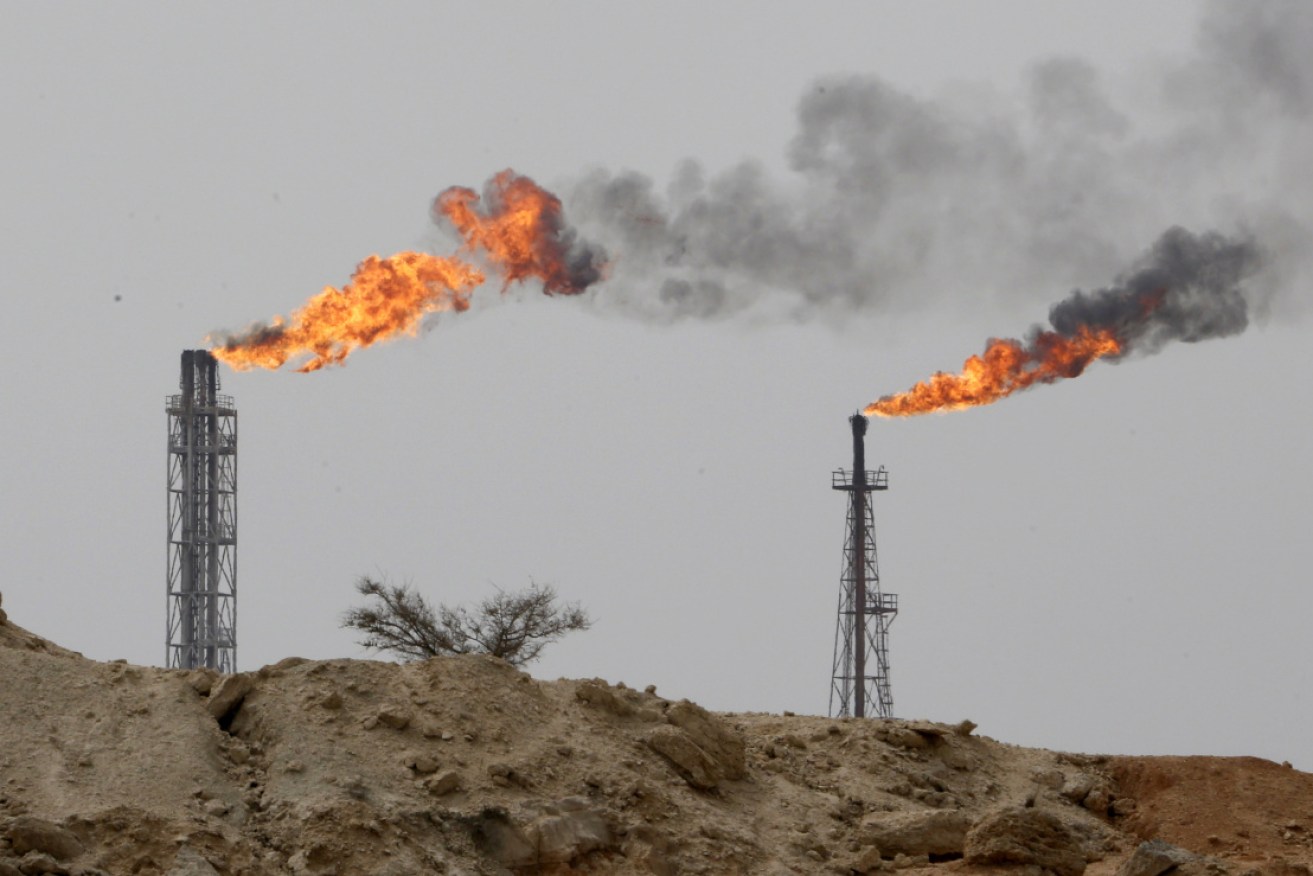US moves to stop any nation from buying Iranian oil


The tightening of Iranian oil exports immediately caused a spike in prices. Photo: Getty
The United States has sought to totally isolate the Iranian oil market by demanding an end to imports by major customers, including China and India.
Iran exports an estimated one million barrels of oil daily, half of which goes to China, according to the New York Times.
The US ban – which has seen oil prices spike to a six-month high – was also aimed India, Japan, South Korea and Turkey, who had previously been granted exemptions from sanctions.
The five major Iran oil importers are also major US trading partners.
“We will no longer grant exemptions,” Secretary of State Mike Pompeo said Tuesday, announcing that sanctions waivers would expire on May 2.
Mr Pompeo said the aim was to halt Iran’s exports entirely, as the US continues to pressure Tehran to curtail its nuclear program, ballistic missile tests and support for conflicts in Syria and Yemen.
The Trump administration said it was working with top oil exporters Saudi Arabia and the United Arab Emirates to ensure the oil market was “adequately supplied”.
However, the market, already fretting about tight supplies, raised scepticism about whether Riyadh could take a slower approach in boosting exports.
The US reimposed sanctions in November on exports of Iranian oil after President Donald Trump unilaterally pulled out of a 2015 nuclear accord between Iran and six world powers last May.
After renewing sanctions, it granted waivers to eight major buyers for a six-month period, which ends in May.
“We are going to zero. We’re going to zero across the board,” Mr Pompeo said.
He said the aim was to deprive Iran of its lifeline of $US50 billion ($70 billion) in annual oil revenues.
The international Brent crude oil benchmark rose to more than $US74 ($104) a barrel on Monday, the highest since November, due to the uncertainty surrounding increased supply from Saudi Arabia and other OPEC nations, while US prices surpassed $US65 ($91) a barrel for the first time since November.
Mr Pompeo said he was confident of Riyadh’s commitment to making sure there was sufficient supply in the market.
Saudi Arabian Energy Minister Khalid al-Falih said on Monday the OPEC exporter would co-ordinate with other oil producers to ensure a balanced market. He said it was “monitoring the oil market developments” after the US statement, without committing to raising production.
OPEC is next scheduled to meet in June.
While the kingdom is expected to boost output again, analysts fear the US move – along with sanctions on Venezuela’s oil industry – will leave the world with inadequate spare capacity.
“Combined with declines in global crude stocks, continued losses in Venezuela production as well as a possible disruption in Libya, a zero-waivers Iran decision will present a challenge to keeping global oil prices in check,” Joe McMonigle of Hedgeye said in a note to clients.
In recent months, Saudi Arabia and other OPEC members have cut supply dramatically.
OPEC, along with allies such as Russia and others, agreed to reduce output by 1.2 million barrels a day but they have exceeded those benchmarks, with Saudi Arabia alone reducing supply by 800,000 barrels per day.
In a tweet, Mr Trump said Saudi Arabia and others in OPEC “will more than make up the Oil Flow difference in our now Full Sanctions on Iranian Oil”.
-with AAP








